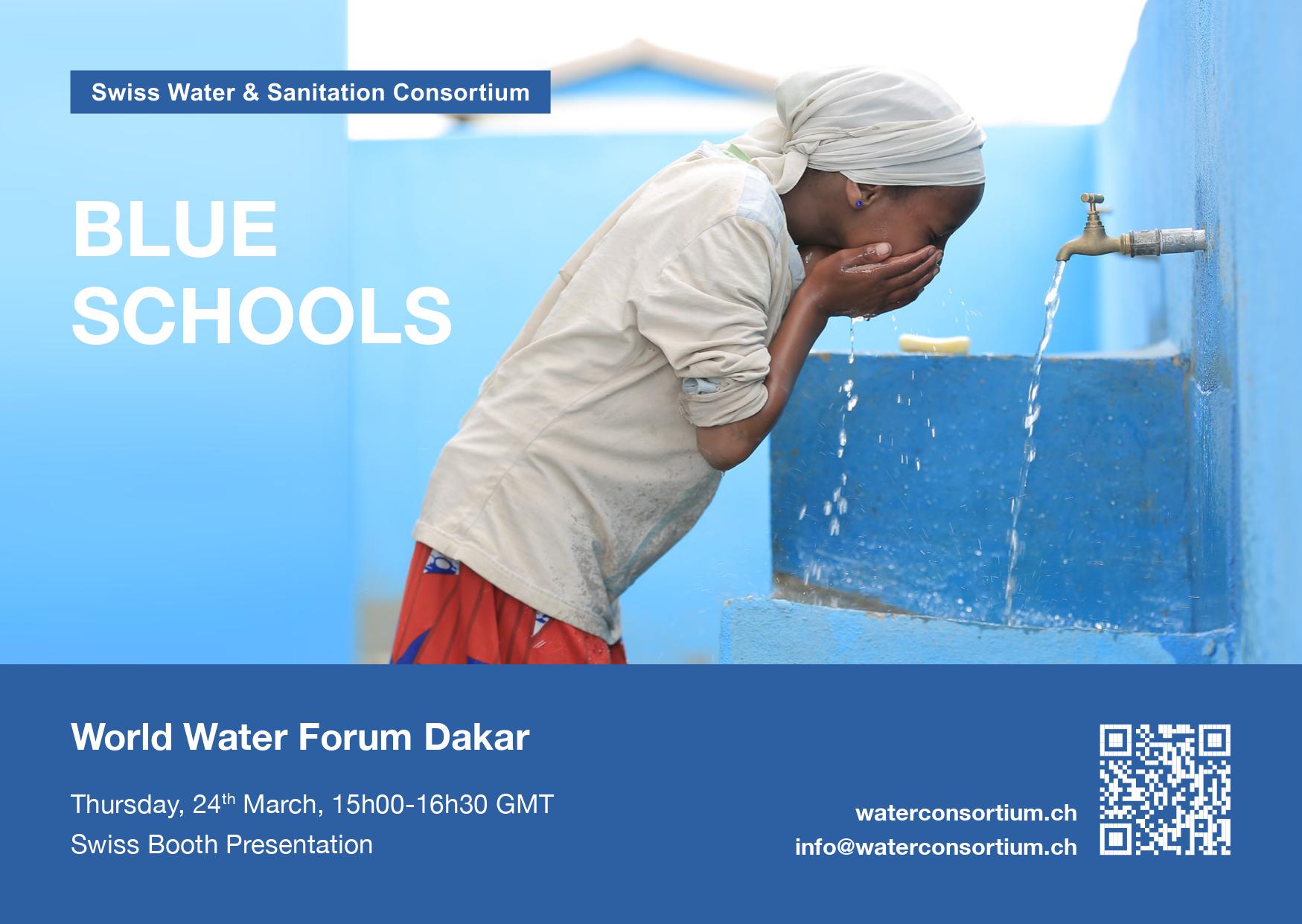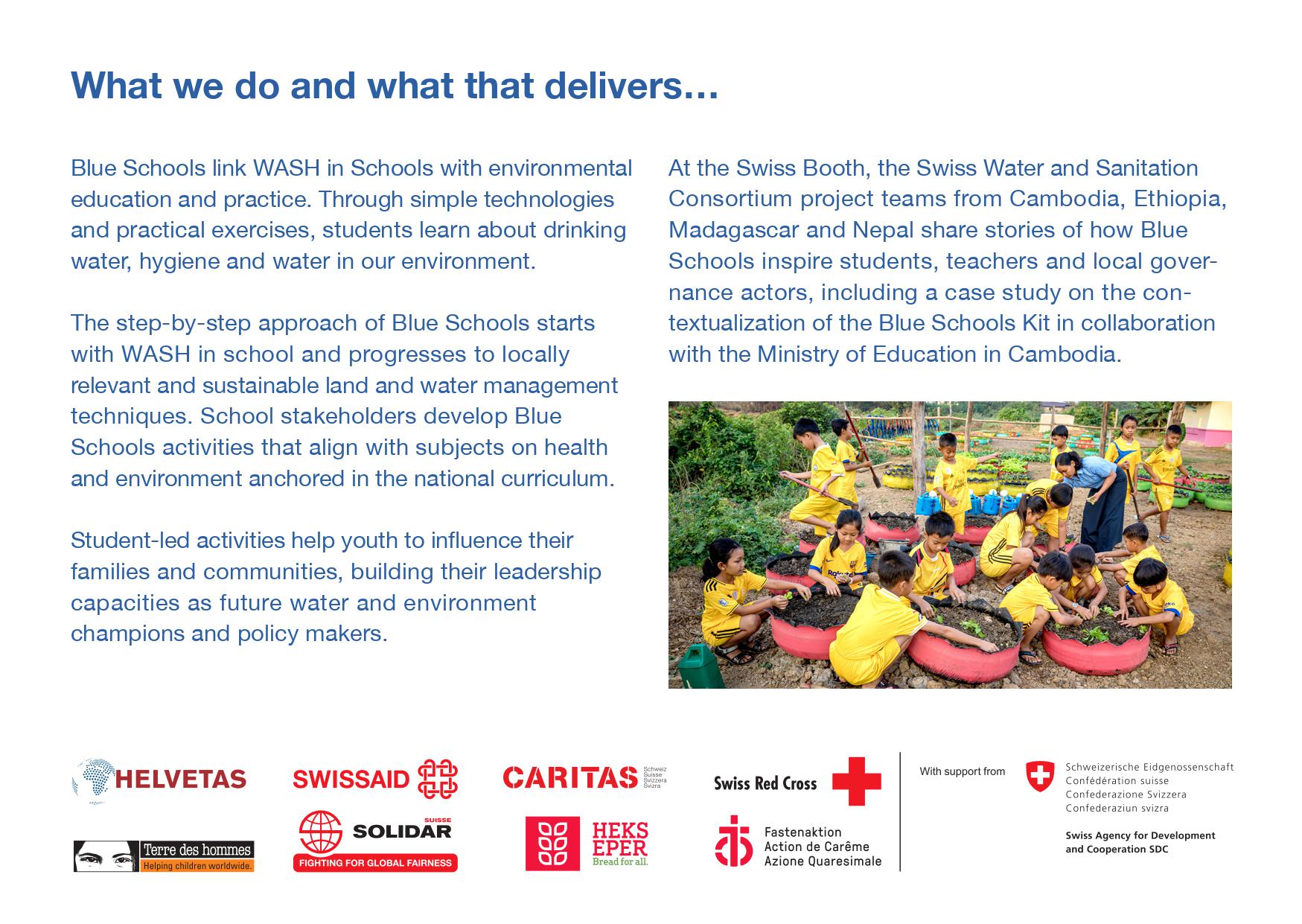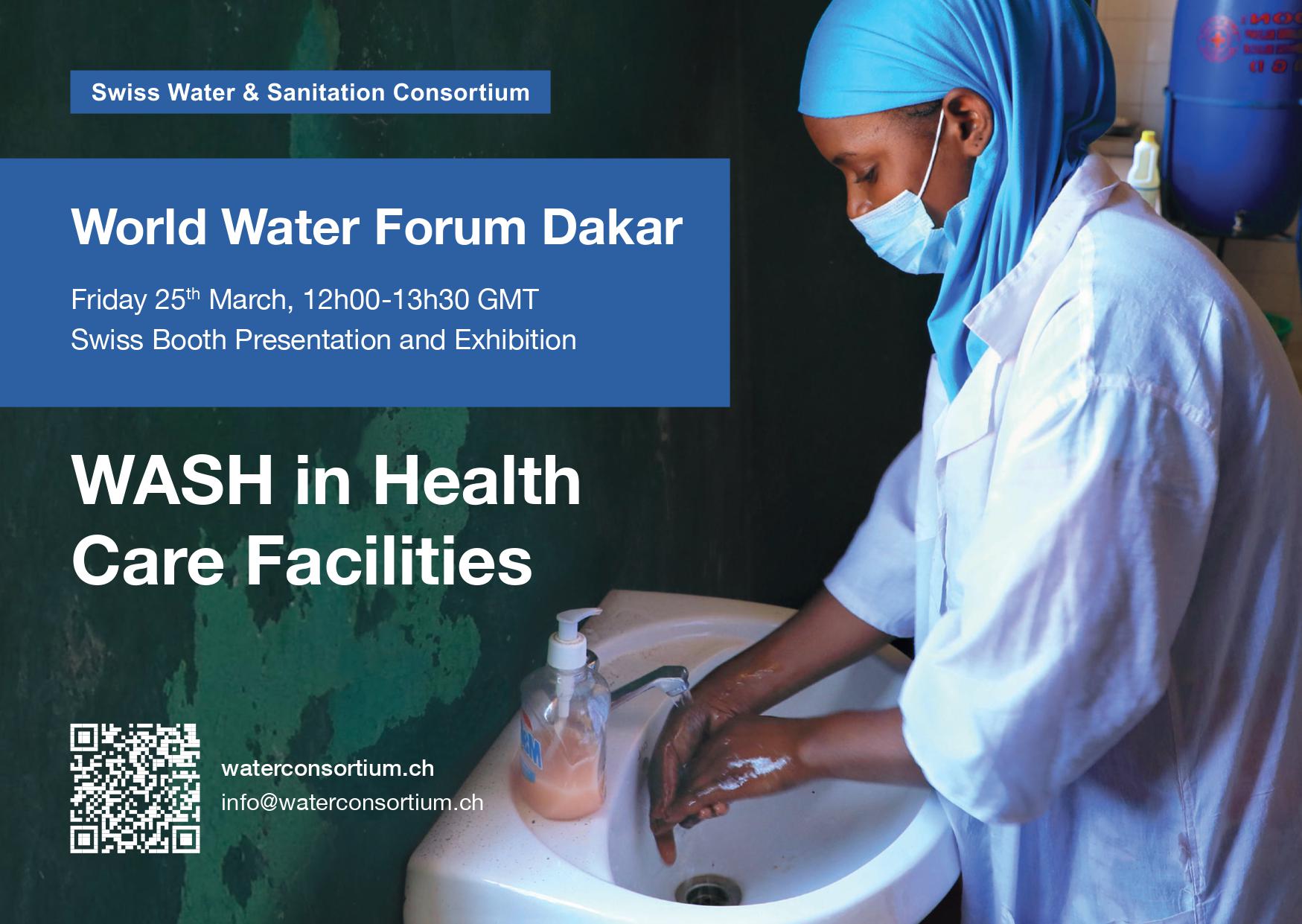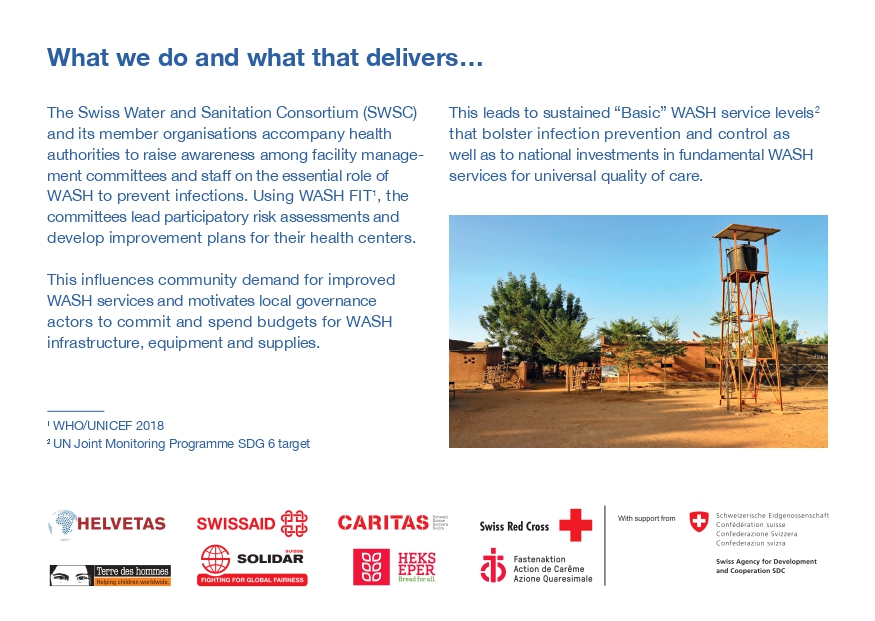21. March 2022
Contributors: Jacques Louvat, John Brogan, Brigit Zuber
Photo Credits: Jacques Louvat
This week, the 9th World Water Forum is taking place in Dakar, from March 21st – 26th, 2022, on the topic of “Water Security for Peace and Development”. The Swiss Water and Sanitation Consortium (SWSC) is also actively participating and contributing to the forum. 15 SWSC representatives came together to share their know-how and experience at the forum. The group consists of project team members and SWSC advisors from Terre des hommes, Swissaid, Helvetas, HEKS, Fastenaktion and Caritas Switzerland from 8 different countries – Mali, Burkina Faso, Niger, Ethiopia, Sudan, Cambodia, Madagascar and Switzerland.
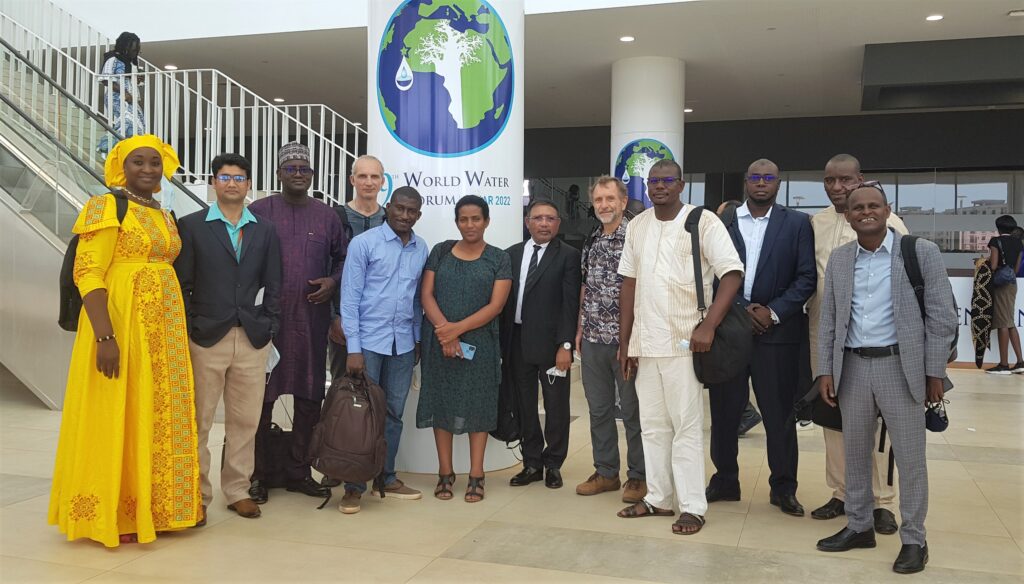
The SWSC Supports Three Official Sesssions
On Tuesday, March 22nd, 2022, the SWSC contributes to the action group 2C1 under the forum priority “Water for Rural Development”, with the session title “Building a collective vision of more robust systems for WASH in public institutions”. The session aims to raise awareness of government stakeholders and their partners of programmatic approaches and strategies that promote WASH improvements at scale in public institutions in their countries. The exchange of knowledge and learning will catalyse increased cross-sectoral commitment (WASH, health and education), investment and policy for WASH in public institutions by governments and its partners.
On Wednesday, March 23rd, 2022, 9am – 10:30am, the SWSC co-organises a session on WASH in Institutions – Advocacy (2C2) with the title “Water is Politics: Professionalizing WASH Advocacy” in cooperation with UNICEF, the WASH advocacy expert John Oldfield and the Water Youth Network. In the session, WASH advocates from across Africa, Asia, Latin America and the Middle East will convene to discuss and debate best, worst, and promising practices in advocating for WASH in healthcare facilities and schools. How are advocates working with political leadership in their countries and communities to accelerate progress on WASH access? What are the challenges encountered, and what are the keys to successful advocacy?
On Thursday, March 24th, 2022, at 1:30pm – 3pm, the SWSC co-convenes a session on WASH in Institutions – Technologies (2C3) with the title “Applying the right technologies for sustainable and at-scale WASH in institutions”. The session aims to stimulate discussion about emerging technology options and considerations for WASH services in specific geographic / climate contexts in order to draft guidance on how best to support government approval and inclusion of appropriate, sustainable technologies for schools and health care facilities.
Blue School Video in the Youth Village
In the youth village in the World Water Forum, the SWSC is featuring a short introduction video to Blue Schools. The project team members of the SWSC who are active in Blue Schools in Africa and Asia have worked together to create a short introduction video to Blue Schools. The 3-minute video explains what a Blue School is in a nutshell. In the video, the Blue Schools approach becomes tangible through images from Blue Schools in Nepal, Cambodia, Madagascar, Uganda, Ethiopia, Benin, Burkina Faso and Niger.
SWSC Presentations and Exhibitions at the Swiss Pavilion
On Thursday, March 24th, 2022, 9:30am – 10:30am, the Swiss Water and Sanitation Consortium members, Caritas Switzerland, Fastenaktion, HEKS/EPER, Helvetas, Swissaid, Swiss Red Cross and Terre des hommes, together with the Swiss Federal Institute for Aquatic Science and Technology will hold a presentation on Blue Schools – Practical, contextualized learning to inspire a generation of water and environment champions. The SWSC project teams from Africa and Asia will share stories of how Blue Schools is inspiring students, teachers and local governance actors, including a case study on the contextualization of the Blue Schools Kit in collaboration with the Ministry of Education in Cambodia.
On Friday, March 25th, 2022, 12pm – 1:30pm, the Swiss Water and Sanitation Consortium members, HEKS/EPER, Helvetas, Swissaid and Terre des hommes, together with WATALUX and Gravit’EAU will hold a presentation on WASH in Health Care Facilities – transformative methods and technologies. In this session, SWSC members will spotlight WASH commitments and investments made by local government authorities and facility management committees to prevent health care acquired infections. Project leads from Africa and Asia will relate how the WASH in Health Facility Improvement Tool (WHO, UNICEF) is catalyzing change. They will also welcome other Swiss partners to present promising, climate-smart technologies in health care facilities. These include the Gravit’eau water recycling systems that enable handwashing without water supply and energy and WATA’s robust electro-chlorinators rolled out in 550 health facilities since 2018.
